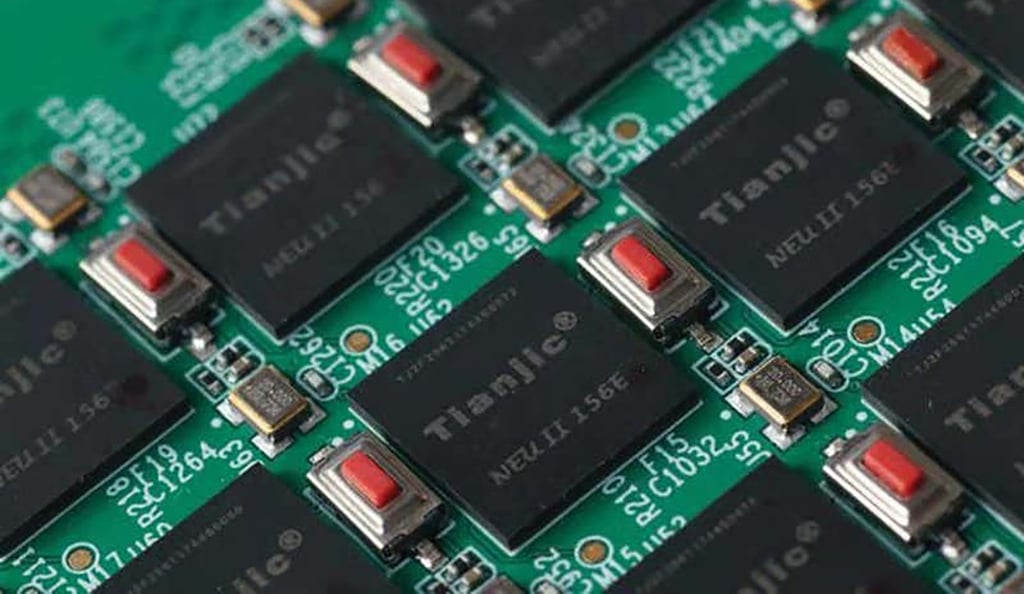Chinese researchers develop hybrid chip design that holds promise for ‘thinking machines’
- Their work on Tianjic hints at China’s accelerated pace of development in the fields of AI and chip design

Chinese researchers have developed a hybrid chip architecture that could move the world a step closer to achieving artificial general intelligence (AGI) and a future filled with humanlike “thinking machines”.
The potential for attaining AGI, also known as “full AI”, by adopting such a general hardware platform was set out by a team of researchers, led by Tsinghua University professor Shi Luping, in a research paper that was published as the cover story of scientific journal Nature on Thursday.
Their research presented the case for the Tianjic chip, which was designed by integrating the “computer-science-oriented and neuroscience-oriented” approaches to developing AGI.
Tianjic shows that combining those two approaches, which rely on fundamentally different formulations and coding schemes, can enable a single computing platform to run diverse machine-learning algorithms and reconfigurable building blocks, among others.

“This chip for general AI has the potential of being applied across many industries,” said Shi, a professor at the Centre for Brain-Inspired Computing Research in Beijing’s Tsinghua University, in an interview on Thursday. “Autonomous driving, robotics and automation would be among the fields where this chip can make a difference.”